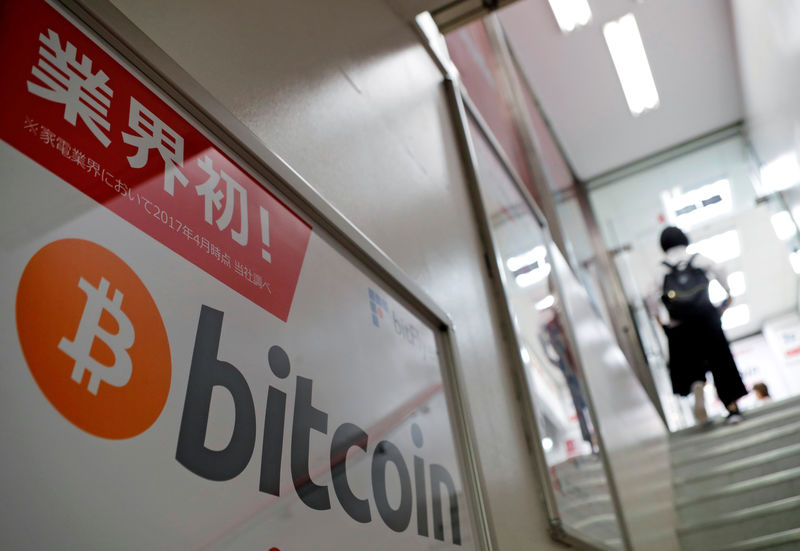Investing.com - Here are the top five things you need to know in financial markets on Thursday, December 7:
1. Global Stocks Climb as Sentiment Improves
Global stock markets were mostly higher, rebounding after two straight days of losses, as appetite for riskier assets improved over optimism the United States would successfully push through tax reforms.
Most Asian-Pacific markets ended higher, as some of the region's technology bellwethers rebounded. Among notable standouts, Japan's Nikkei jumped 1.5%, recouping much of its 2% loss the previous day, which was its biggest fall since late March.
In Europe, most of the continent's bourses were in positive territory in mid-morning trade, following two days of declines, as tech stocks recovered in the wake of a similar move in Asia and Wall Street.
On Wall Street, U.S. stock futures pointed to a higher open, with the tech-heavy Nasdaq futures indicating a gain of 0.4%. U.S. equities finished relatively mixed on Wednesday, with the Nasdaq lifted by an uptick in technology stocks.
2. Dollar Hits 2-Week Highs Amid Optimism Over Tax Reform
The dollar rose to its highest level in two weeks as optimism towards U.S. lawmakers' making progress on tax legislation continued to grow while fears over a potential government shutdown receded.
The U.S. dollar index, which measures the greenback’s strength against a trade-weighted basket of six major currencies, was at 93.65, the most since November 22.
The Republican-led Senate voted on Wednesday to go to a conference committee with the House to negotiate a plan to reform the tax system, amid early signs that lawmakers could bridge their differences and agree on a final bill ahead of a self-imposed Dec. 22 deadline.
Meanwhile, worries over a potential U.S. government shutdown eased after a bill advanced in the House of Representatives late on Wednesday to extend current federal funding through Dec. 22, with the chamber expected to take up the bill on Thursday.
Congress is facing a deadline of Friday at midnight to pass fresh spending legislation. If they cannot agree on the terms, parts of the federal government could shut down.
3. Bitcoin Soars Past The $15,000-Level
Bitcoin rocketed higher, with prices crossing the $15,000-mark just 10 hours after topping $14,000, despite worries about a dangerous bubble and questions about the cryptocurrency's real value.
Bitcoin, which trades 24 hours a day and seven days a week, climbed as high as $15,245 on the U.S.-based GDAX exchange, the most in its nine-year history. It was last at $15,200, up 7.8% on the day
That said, there are often significant price differentials on different bitcoin exchanges, but most showed the cryptocurrency well above the $14K-level.
Prices have been boosted after CBOE Global markets said it will launch trading in futures trading in the cryptocurrency from Dec. 10 after receiving a green light from the Commodity Futures Trading Commission. CME Group (NASDAQ:CME) will begin initial listings of bitcoin futures contracts on Dec. 18.
Bitcoin, which started 2017 at about $1,000, has risen almost 1,500% so far this year.
4. Oil Ticks Up but Stays Near 3-Week Lows
Oil prices inched higher, but held near the prior session's three-week lows after a sharp rise in U.S. fuel inventories suggested demand may be flagging, while U.S. crude production hit another weekly record.
U.S. West Texas Intermediate crude futures traded at $56.20 per barrel, up 0.4% percent, after plunging 2.9% in the last session. Prices touched an intraday low of $55.82, their worst level since Nov. 20.
Meanwhile, Brent futures gained 0.6% to $61.63 per barrel, after having fallen to $61.13 on Wednesday, its lowest since mid-November.
5. Gold Prices Sink to Lowest Since mid-August
Gold prices sank to a four-month low, as investors shunned safe-haven assets amid optimism on U.S. tax reforms.
Comex gold futures were at $1,257.50 a troy ounce, down $8.70, or about 0.7%, from the last session's closing price. It touched its lowest level since Aug. 8 at $1,256.80 earlier.
Some investors also believe the tax-related boost to the economy will prompt the Federal Reserve to raise interest rates at a faster pace.
Gold is highly sensitive to rising rates, which lift the opportunity cost of holding non-yielding assets such as bullion.
